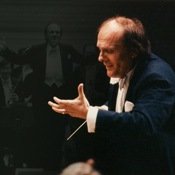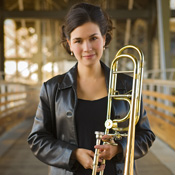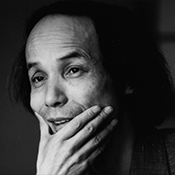
Conductor Joseph Young Leads MSO For Dvořák’s Ninth Symphony
David Lewellen
PUBLISHED
Tagged Under: 2023.24 Season, Conductor, Guest Artist
After graduating from college, Joseph Young spent three years as a high school band director. It’s a long way from there to leading major orchestras, but he hasn’t forgotten where he came from.
Young, who is now the music director of the Berkeley Symphony and artistic director of ensembles at the Peabody Conservatory in Baltimore, will lead the MSO on May 10-11 in a program that includes Dvořák’s “New World” Symphony.
Whether teenagers or early career conductors, he still loves music education. As the first in his family to go to college, that was his major as the practical option – but all the while he was buying and studying scores by Mahler, Stravinsky, and other classical heavyweights. His break came when he used his professional development money to attend a workshop with Marin Alsop, the former music director of the Baltimore Symphony. She was able to find funding for him to study with her at Peabody, “and it changed my life,” he said.
From there, Young did stints as an assistant conductor in Buffalo, Phoenix, and Atlanta, learning from music directors and eminent guest conductors – while rarely getting a chance to lead the biggest pieces in the repertoire. That was one reason why he jumped at the Peabody job several years ago.
At Peabody, Young co-teaches with Alsop, his former mentor, offering students instruction both in how to lead standard warhorses and in the realities of a young conductor’s life, such as movie soundtracks and educational concerts.
Even their rehearsal technique draws scrutiny. He will ask students how to choose words that will inspire musicians, but he will also tell them, “Conducting is the art of physical communication, the art of hands. One of the first things that Marin told me is that if you can show them instead of tell them, that’s most of the battle. But my rule is to show them three times, and after the third time, say something.”
His program in Milwaukee includes two pieces by Americans (one living, one not) and a piece that was famously inspired by the music of America. Pulse, the concert opener, is by Brian Raphael Nabors, a composer Young admires for “the cinematic quality and the idea of optimism he creates in his music. He lets us experience the joy of life, which is exactly what I needed after the pandemic.”
Nabors, like Young, is Black, and Young enjoys “bringing undiscovered masters out of the woodwork and making sure their music is heard. During my music education, a lot of this music wasn’t a part of it, and I’m excited as a conductor about discovering it.”
He will also have a chance this fall to help audiences discover the music of Jeanine Tesori when he leads her opera Blue in his debut with Lyric Opera of Chicago. As he gets the chance to do more opera work, he said, “Watching a character open up onstage and creating new musical ideas is so rewarding. I love the process of opera. There’s something organic about piecing it together over a month.”
His MSO program closes with Antonín Dvořák’s Ninth Symphony, better known by its subtitle, “From the New World.” Dvořák, a native Czech, spent three years in the United States when he was already a well-established composer, and the symphony bears the influence of the Black and Indigenous melodies that he heard during his stay.
But Young dismisses any talk of cultural appropriation. Dvořák, he said, “came here to help American composers find their voice, and he said that the American sound is found in Negro melody. I think Dvořák’s intentions are in a good place.”
And, he added, “It’s like Beyoncé doing country music. Are we saying that someone can’t be inspired by another culture? He found the heart of the American sound in three years, and it’s still taking us forever.”



